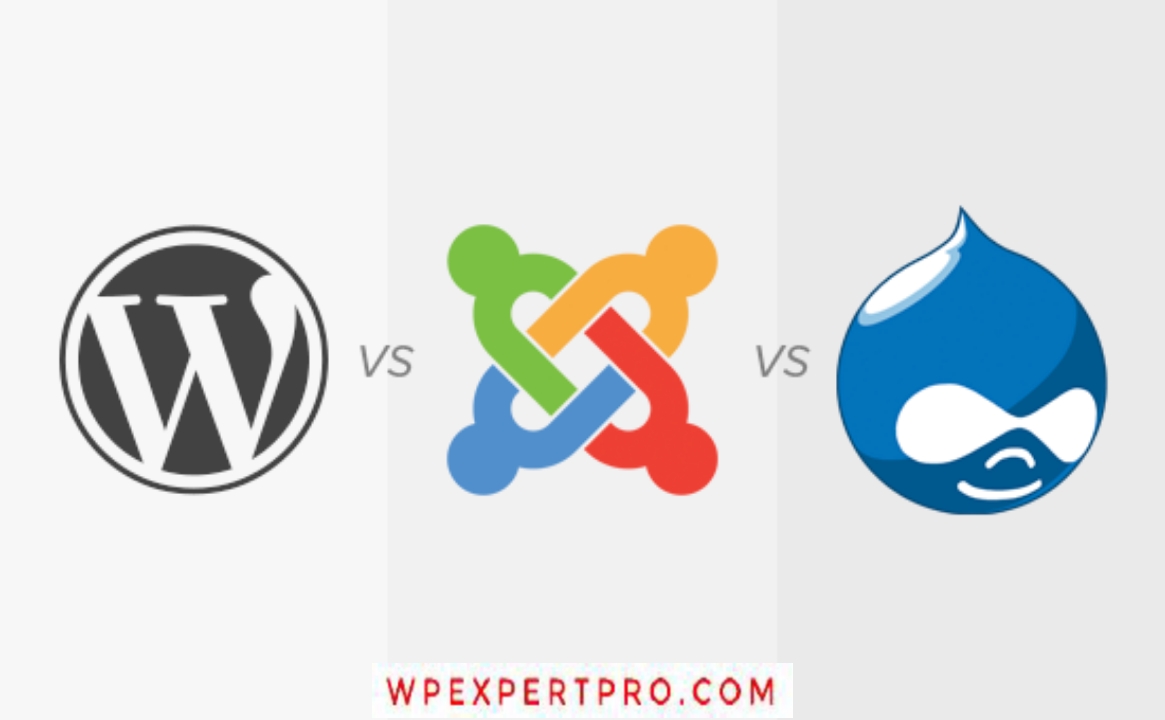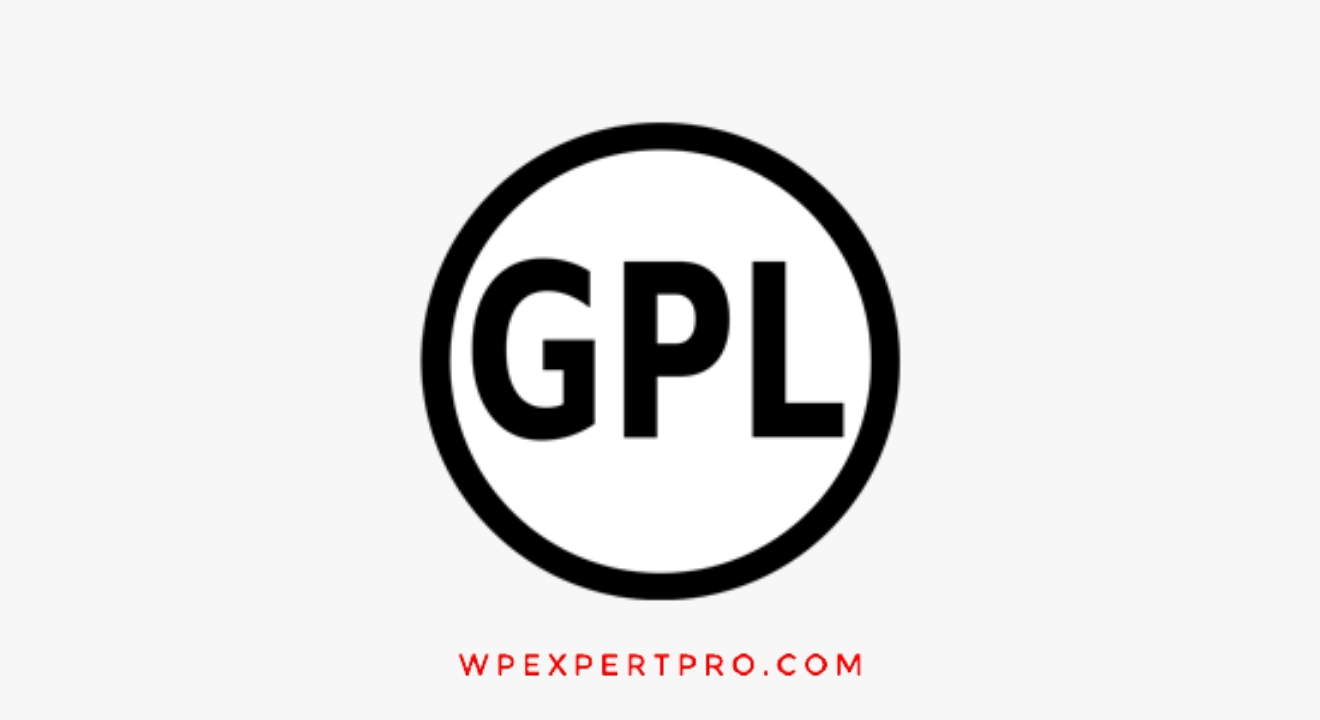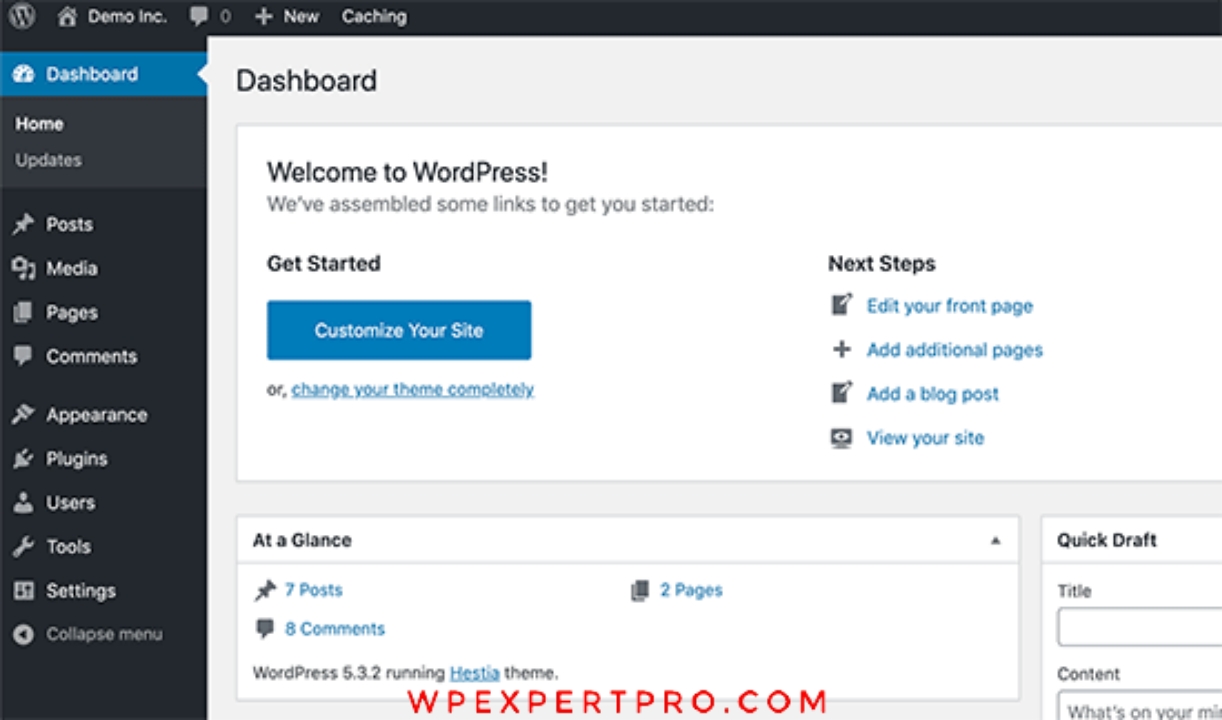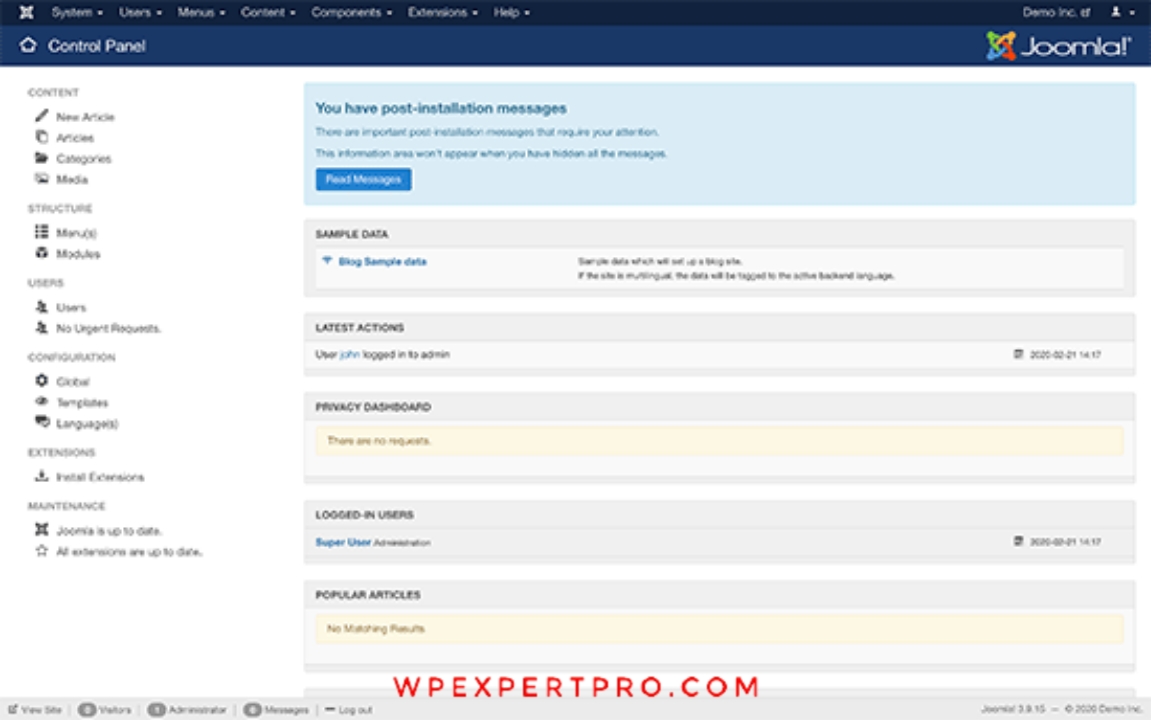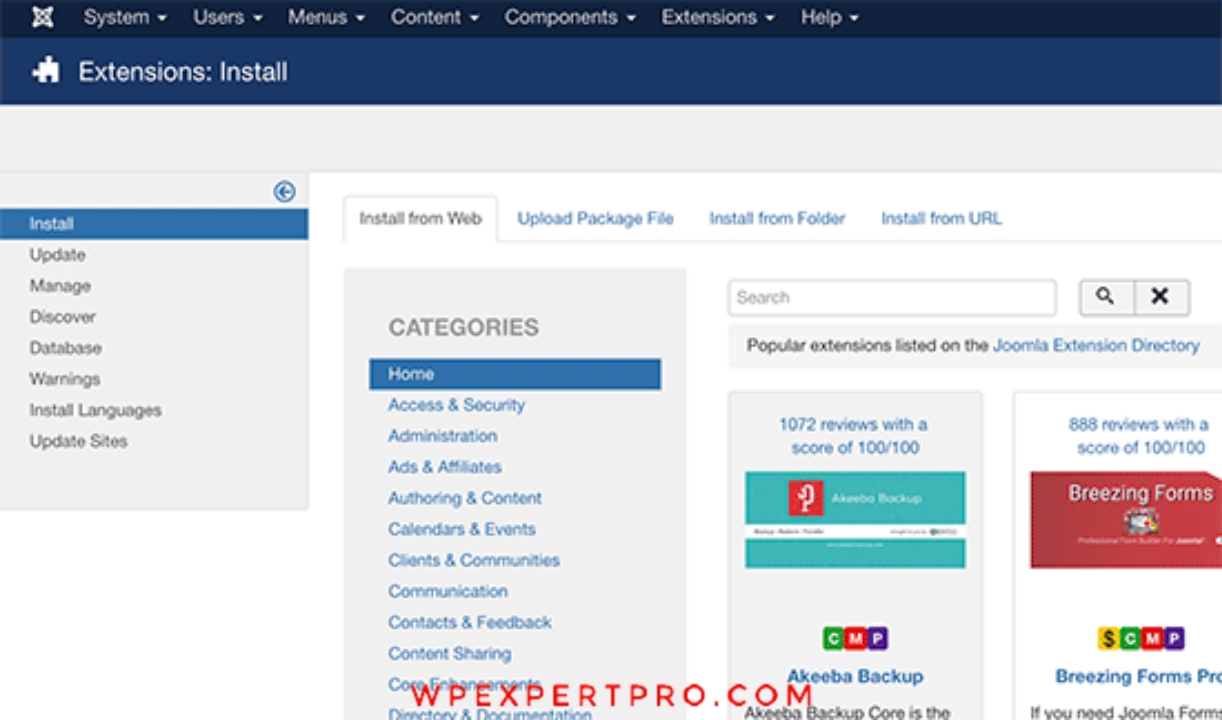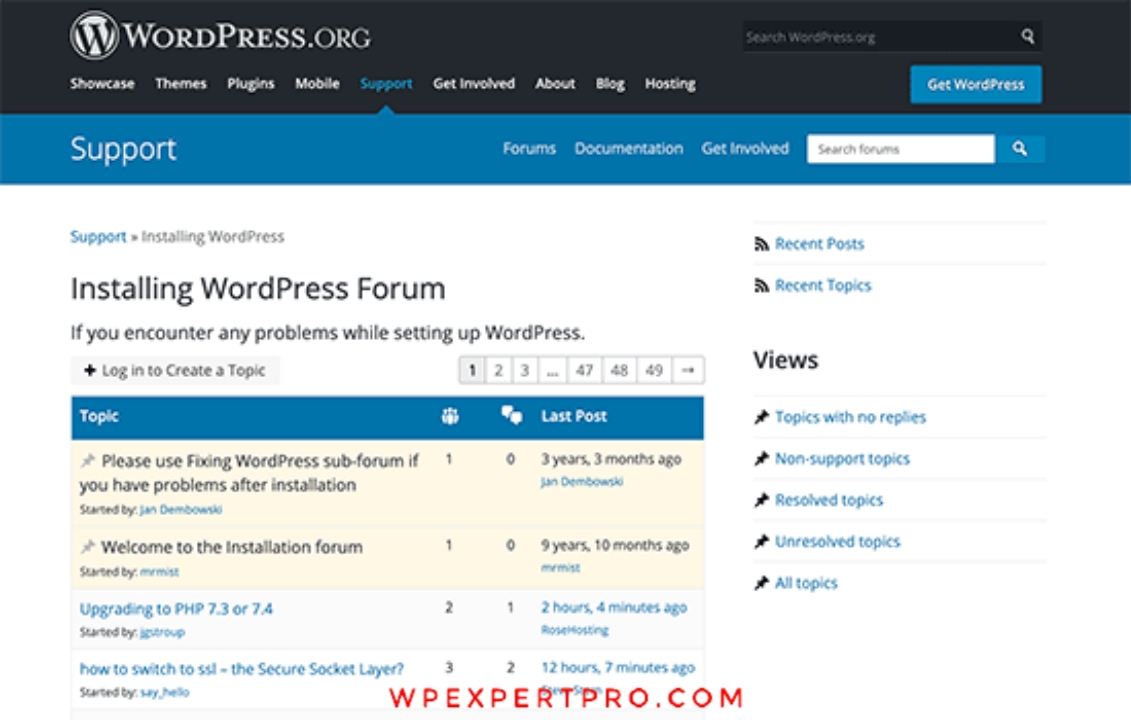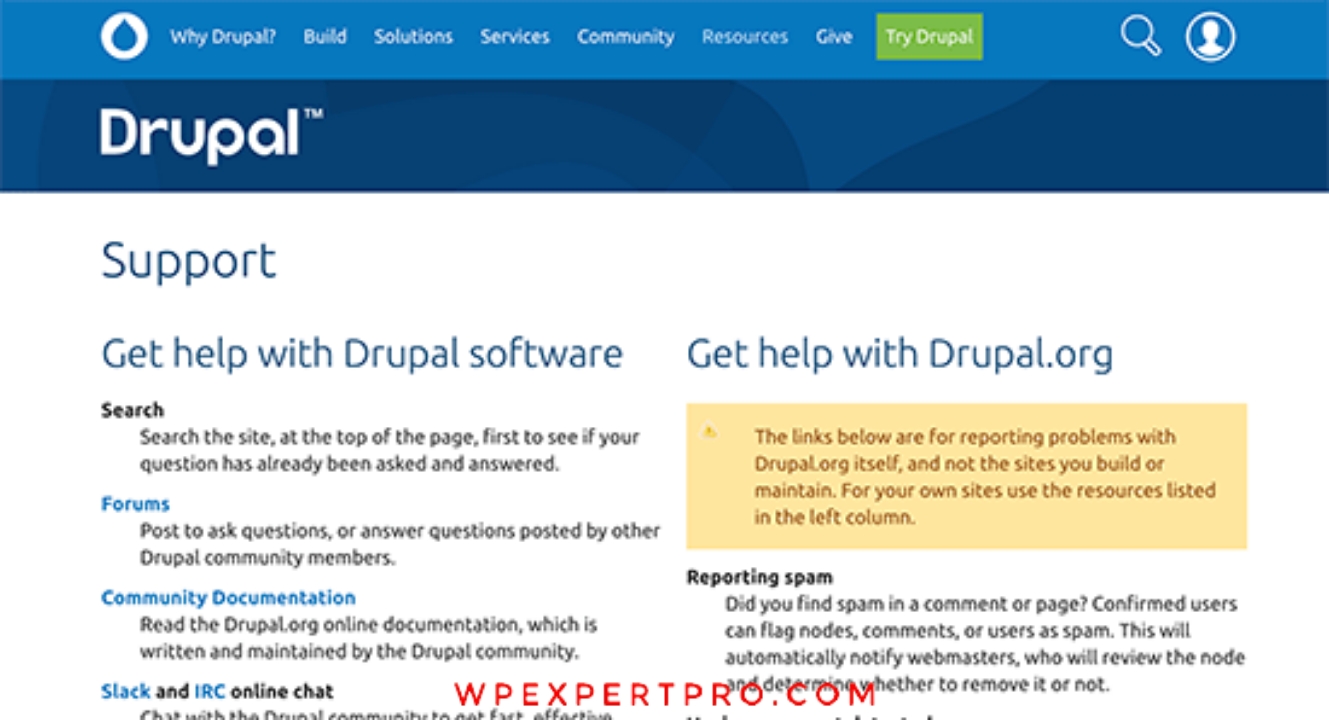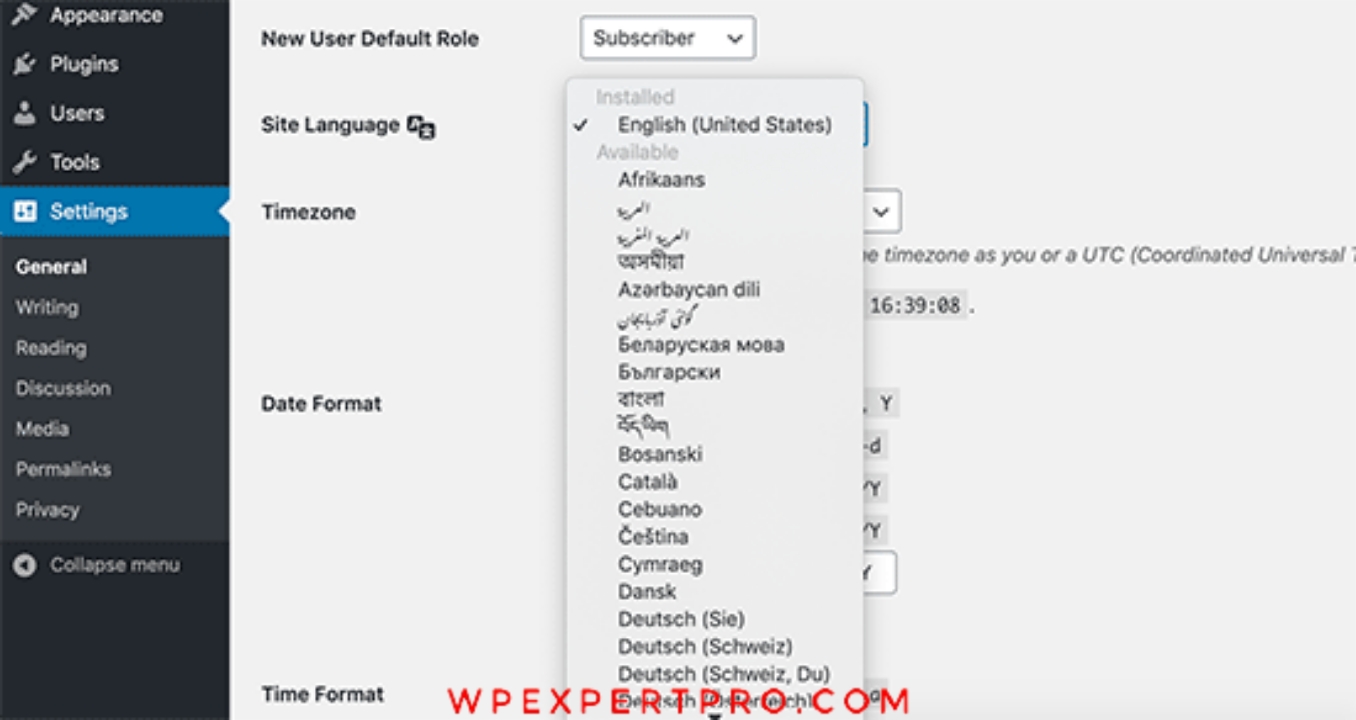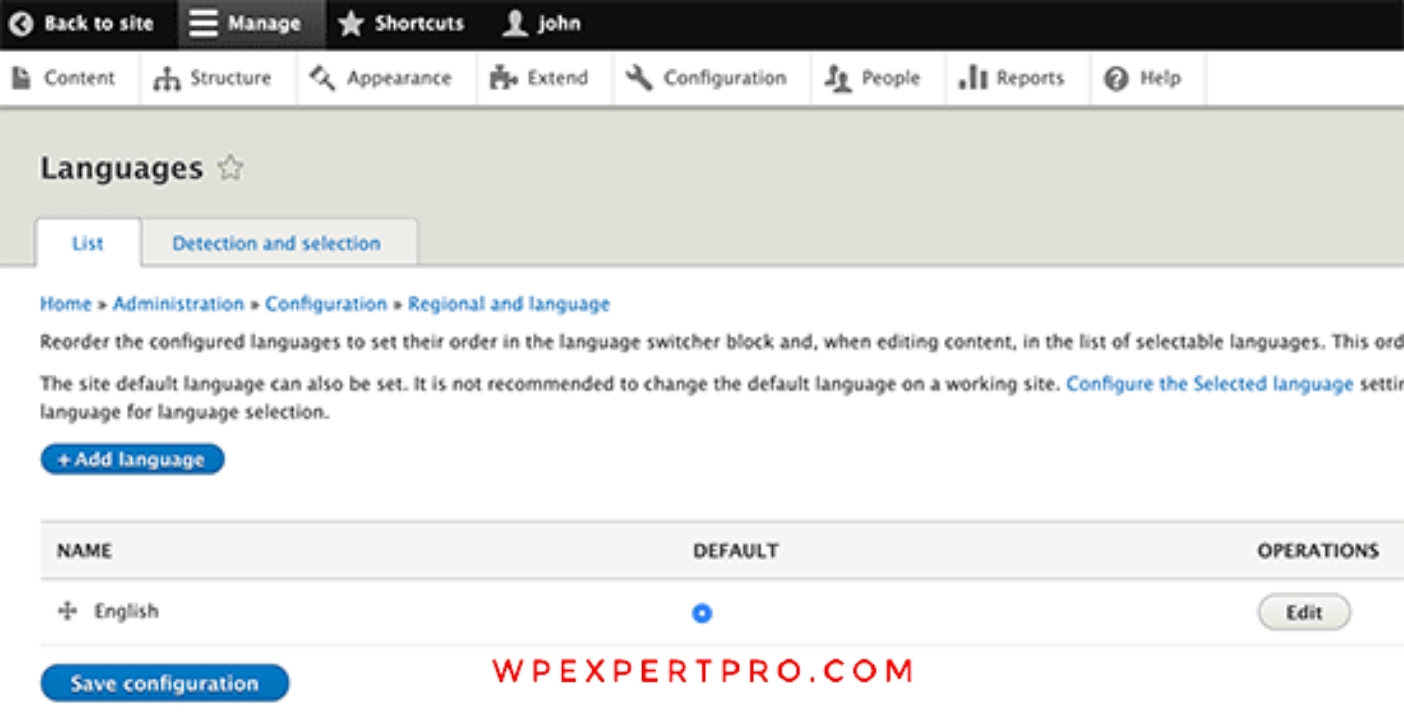Despite the fact that WordPress runs more than 41% of all websites on the internet, it is not the only open-source content management system (CMS) available. There are also popular software solutions like as Joomla and Drupal.
They have a lot in common and a lot of important distinctions. Each one is a distinct website builder with its own set of advantages and disadvantages.
We'll compare WordPress, Joomla, and Drupal in this article to see which is the best option for you.
We're comparing the WordPress.org hosting service, not the WordPress.com hosting service. Please visit our WordPress.org vs. WordPress.com guide for more information.
What Do WordPress, Joomla, and Drupal Have in Common?
In terms of technology, attitude, and community, all three of the web's most popular CMS have a lot in common.
- WordPress, Joomla, and Drupal are all GPL-licensed free and open source software.
- The three of them are mostly written in PHP.
- MySQL is the database management system that they all use. WordPress only supports MySQL, whereas Joomla and Drupal both support a variety of database management systems.
- Themes and templates are used for the visual aspect of the website, and plugins, modules, and extensions are used to extend the features.
- They're all community-driven projects because they're open source software.
While they have many commonalities, they differ in a number of ways.
For example, they have distinct principles regarding what should be included in the core software, how modules and templates should be handled, and how security should be handled, among other things.
These distinctions have a significant impact on users and how they design websites.
With that in mind, let's see how WordPress, Joomla, and Drupal stack up against each other so you can pick the finest website building platform for your company.
Beginner-Friendliness and Ease of Use
The majority of people who create websites are neither web designers, programmers, or web developers. They are ordinary people who simply wish to create a website. For the majority of consumers, ease of use is the most crucial factor.
WordPress
WordPress has a well-known five-minute installation. The majority of WordPress hosting companies also feature one-click WordPress installation. This makes it very simple for a new user to create a WordPress blog or website in minutes rather than hours.
WordPress offers a far superior post-installation user experience than Joomla or Drupal. The user is greeted with a straightforward user interface with menus for creating posts, pages, and modifying appearance and themes.
Joomla
Although Joomla installation does not appear to be as speedy as WordPress, the methods are relatively similar. Aside from that, many shared hosting companies offer Joomla one-click install packages.
Following the installation, the user is presented with a control panel that is not as user-friendly as WordPress'. There are simply too many choices to choose from when customizing your website.
Joomla supporters might argue that this is because Joomla is far more powerful than WordPress, but we disagree.
Drupal
The installation of Drupal is identical to that of Joomla and WordPress. Simply download and upload the package, then execute the script to install it.
Drupal also has distributions available. These are Drupal bundles that come pre-configured with modules and configurations to help you build particular types of websites.
For complete newbies, the post-installation experience is a little challenging. Users will have a hard time figuring out how to make changes to their site. Drupal makes it quite obvious how to add content, but it is less obvious how to change the appearance and add non-content items.
WordPress comes out on top.
Add-ons and Themes
All three of these popular CMSs provide themes and plugins / modules that can be used to enhance the software's functionality and appearance.
The appearance of your website and how it appears to your visitors is controlled by themes. Plugins, also known as modules, are similar to apps for your CMS.
Let's take a look at how these three main CMS programs fare in this category.
WordPress
Themes are used by WordPress users to customize the appearance of their site. WordPress comes with a few pre-installed default themes.
You can install free WordPress themes from the official WordPress.org theme directory at any time by clicking the add new button on your Appearance page.
Apart from free themes, third-party theme companies such as StudioPress, Astra Theme, Elegant Themes, and others provide a plethora of premium WordPress themes. These are premium themes that include premium support.
Plugins are where WordPress' true power lies. In the official WordPress plugin directory, there are over 58,000 plugins accessible for free. You can also purchase premium plugins that include paid support from the plugin's creators.
Joomla
Joomla has templates and extensions, just like WordPress. There are excellent extensions for almost everything, from setting up an eCommerce business to managing email.
However, the number of templates and extensions available is not as large as WordPress. This could make choosing the ideal template and extensions a little more challenging.
Joomla does not have a function that allows users to search for and install extensions or templates from the administration area by default. There is an extension that allows you to add the ability to install extensions via the web. However, users would still have to search for templates manually and then install them by providing their URL.
Drupal
The availability of themes and modules is a problem in Drupal as well. Users must leave their current site, look for the module and theme they want to install, and then find the project's zip file URL. Finally, they can install them by going to the Modules or Themes tab and entering the URL.
There are modules for almost anything, and new on
es are created on a regular basis. When compared to WordPress, the overall quantity of modules is still low.
WordPress came out on top.
Alternatives for Help
For new users, the provision of help and support tools is critical. When you're testing out new software, there will undoubtedly be some challenges. That's fine as long as you can receive assistance.
WordPress
WordPress has a large and active user base. Official support forums, docs, handbooks, codex, Slack channels, Stack Exchange, , and practically any forum on the internet discussing web design and development are all good places to look for WordPress help.
There are websites like WPBeginner that include hundreds of tutorials, video tutorials, and articles for WordPress beginners. There are numerous ways to request and receive free WordPress assistance.
There are ways to acquire paid assistance for WordPress in addition to the free choices.
Codeable, UpWork, Fiverr, and other online marketplaces are just a few of the locations where you may hire WordPress experts to assist you. Because of WordPress's enormous popularity, finding WordPress developers is simple and inexpensive for small enterprises and individuals.
Joomla
Joomla, like WordPress, has a sizable and supportive community. The Joomla website has substantial documentation, which is a great resource for newcomers. Users can participate in forums, email lists, user groups, and other forms of interactive support.
Third-party resources, paid training, and development organizations, in addition to community assistance, can be beneficial.
Unlike WordPress, Joomla makes it tough to acquire affordable expert assistance. Hiring a developer or expert for Joomla development, troubleshooting, or support might be far more expensive than hiring a WordPress developer.
Drupal
Drupal has a very active user and fan community. Just like WordPress and Joomla, you'll find all of the community support options for Drupal. There's a lot of documentation, as well as a support forum, mailing lists, user groups, and irc chatrooms. All of them are excellent resources for free advice and assistance.
Drupal attempts to connect users with developers and businesses that provide professional Drupal services. They're available on Drupal Marketplace.
When compared to WordPress, Drupal developers, like Joomla developers, are more pricey.
WordPress comes out on top.
Multilingual support and localization
Non-English or multilingual websites account for a considerable percentage of new websites generated every day. Many beginners are more inclined to opt for a CMS that can manage several languages or supports many locales and languages.
WordPress
WordPress does a fantastic job of providing a solid foundation on which to develop a multilingual website. Although it does not support several languages out of the box, there are some good plugins that make it simple to construct a multilingual WordPress site.
WordPress is accessible in a whopping 57 different languages. From the WordPress admin area, new languages may be installed with a single click.
The most popular themes and plugins come in a variety of languages. The creators of themes and plugins are actively seeking assistance in translating their products into additional languages.
Because of these efforts, WordPress is an excellent platform for creating non-English or multilingual websites.
Joomla
Joomla comes with the ability to manage multilingual websites out of the box, so you won't need to install any extensions. Simply go to Language Manager, select a content language, and begin developing multilingual content for your website.
In addition, translations for the admin interface are available in a variety of languages and may be readily installed from the admin area.
Drupal
Drupal has built-in support for sites that aren't in English or are multilingual. Locale and content translation modules must be enabled. Then, from Drupal's configuration area, you may add site and admin interface languages.
Winner: a stalemate – All three support multilingual sites and are accessible in a variety of languages.
Security
When it comes to choosing a CMS for your website, security is crucial. Almost every website on the internet is at risk of being hacked.
WordPress
WordPress-based websites are frequently targeted by hackers due to their popularity as the world's most popular CMS. WordPress, on the other hand, is built on a very safe code and responds to security flaws rapidly.
WordPress also features an auto-update feature that allows WordPress websites to be updated automatically whenever a new security patch is released.
Automated backups, two-factor authentication, and other WordPress security best practices can help secure your site even further.
There's also a built-in system for displaying WordPress theme and plugin changes. This enables theme and plugin developers to respond quickly to any security flaw.
Joomla
When it comes to security, Joomla is pretty comparable to WordPress. They are quick to respond to any security flaws and quickly patch them immediately. However, it is still the user's responsibility to maintain a website and apply updates.
Extensions for backing up your Joomla site are available. You may also improve the security of your Joomla site by using the same best practices as WordPress.
Drupal
Drupal takes security extremely seriously. As security flaws are uncovered and patched, they post them on their own website. There is a misconception that Drupal is more secure because you don't hear about Drupal sites being hacked as frequently as Joomla or WordPress, but this could be due to the fact that Drupal isn't as popular.
Winner: a tie — all three adhere to the highest levels of security.
Conclusion
Drupal, Joomla, and WordPress are all excellent content management systems. Drupal and Joomla have far more functionality built-in than WordPress.
WordPress, on the other hand, outperforms them in terms of ease of use, worldwide community, plugins, and themes. We believe that most non-developer users will find WordPress more easier to use than Joomla or Drupal.
You may add almost any feature or create any style of website you want with over 55,000 WordPress plugins (without writing code).
WordPress is the overall winner.
How to Get Started With Your Favorite Content Management System
To create a website, you'll need a domain name and website hosting, regardless of whether you use WordPress, Joomla, or Drupal.
Fortunately, all three of these top CMS software have very similar requirements, therefore they are all supported by major web hosting companies.
Bluehost or SiteGround are both good options. They are both among the world's largest hosting businesses, specializing in WordPress, Joomla, and Drupal hosting.
We hope this post assisted you in determining the best CMS for your website by comparing WordPress vs. Joomla vs. Drupal.

